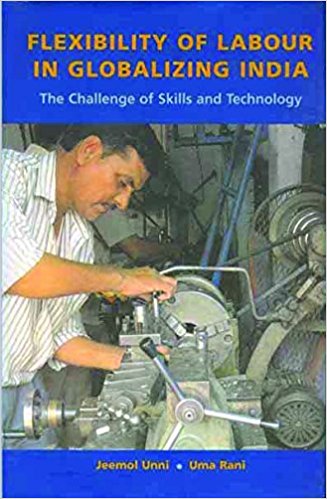The waves of liberalization and globalization in the Indian economy since the early 1990s have thrown up new challenges for labour. With the advent of new forms of production organizations, necessitated by the integration of markets, there have been drastic alterations in technologies used and processes handled by small enterprises in the country. This technological change and the resultant modifications in division of labour, inter alia has led to a rise in demand for ‘employable’ workers (who possess new skills), alongside rendering several others ‘redundant’—for not having ‘saleable’ skills. An analysis of skill upgradation efforts of enterprises and workers, in times of globalizing production systems and changing technologies, enables a wider conception of the present-day labour market dynamics. The book under review, Flexibility of Labour in Globalizing India: The Challenge of Skills and Technology, invites considered reading in this context, as it discusses the impact of globalization in developing economies through an analysis of interlinkages between technology, skills and labour market flexibility.
The discussion in the book is pitched around the advent of new technologies that facilitated globalization through the integration of markets—product, labour and financial. An increase in demand for workers who possess compatible skills vis-à-vis new production techniques/organizations is viewed as an immediate impact of globalization, which is facilitated by a series of trade liberalization measures.

